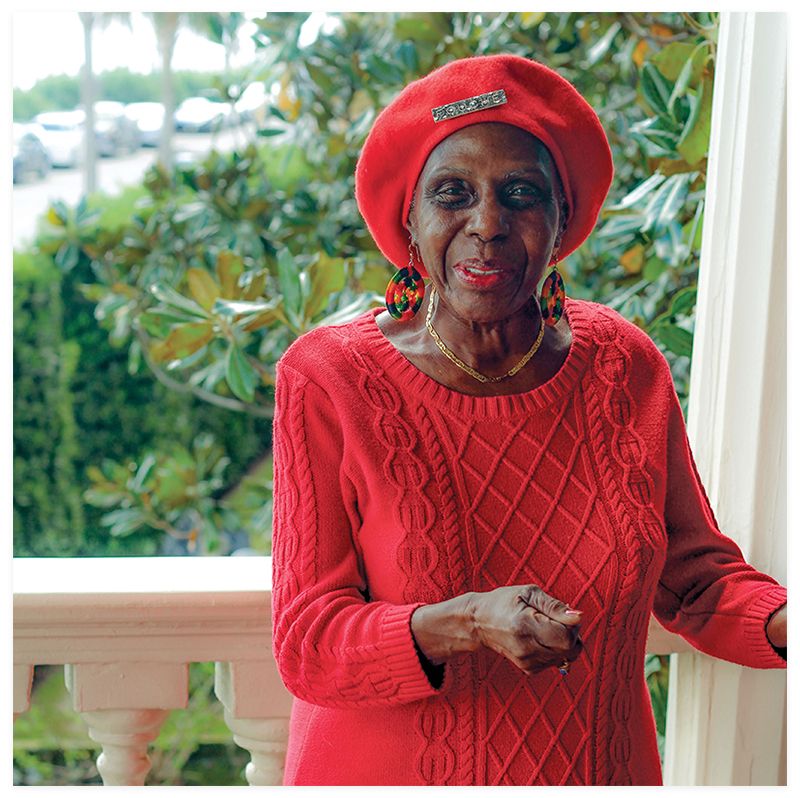See her at the Edmondston-Alston House on December 5 and 6 or December 13 on her next “In Their Footsteps” African American history tour with Walk & Talk Charleston

A rhythmic energy emanates from Fouché Sheppard as she moves in front of a crowd, chanting, “I lub masef da wa auh iz.” With a poetic lilt, the Charleston-born storyteller encourages onlookers to repeat the phrase, explaining how to substitute letters and sounds to transform English words into Gullah. As a certified interpretive guide, Sheppard has shared her family’s language with the public for more than four decades.
Growing up, Sheppard seamlessly shifted from Gullah at home to English in school. When she was denied a long-distance operator job “because they said nobody could understand me over the telephone,” shame left her determined to speak only English. More than 25 years later, she discovered a niche for Gullah storytelling and rekindled a love for the language passed down by formerly enslaved people on the Sea Islands. In 2012, Sheppard’s career went on hiatus after an apartment fire destroyed her possessions and her will to work. Thanks to prayer, reflection, and a dedicated audience, the performer has reclaimed her calling. Here, Sheppard explains the importance of sharing her culture through stories, poetry, and song.
CM: Who taught you to speak Gullah?
FS: Grandmother taught us the native language. In her home, that was all we spoke, “don be taulkin dem white pepil tauk in diz huz.” She taught us to dance and sing to scriptures. At school, the teachers focused on English pronunciation and enunciation because the tests were written in English.
CM: When did you begin performing?
FS: In 1985, I was working as an administrative assistant and clowning in night clubs on East Bay Street. One day, Joey Morant contacted me that the lead singer for their band could not come to their MOJA show at the Garden Theater. They were doing jazz, so he asked me to recite a poem. That was the first time I had ever been on stage. Everybody liked it, and they requested for me to come back. After that, my career just zoomed.
CM: Tell us about your recitation of The Night Before Christmas.
FS: I started at the Edmondston-Alston House in 2004 or 2005 inside the carriage house. I get so wild adding stuff on to make sure people are laughing when they leave. I always pay tribute to my grandmother in telling it because, even though she never told that story, I use the antics she taught us. She was such a card.
CM: What does it mean to share your native language with others?
FS: After the fire, I see my work from a spiritual point of view. I want people to understand the interconnections we have. I don’t know what tribe I’m from, but I know I have a connection to the motherland. When Africans were captured, they didn’t all speak the same dialect. Africans developed this language because of life and death. The language saved millions of lives here in South Carolina.